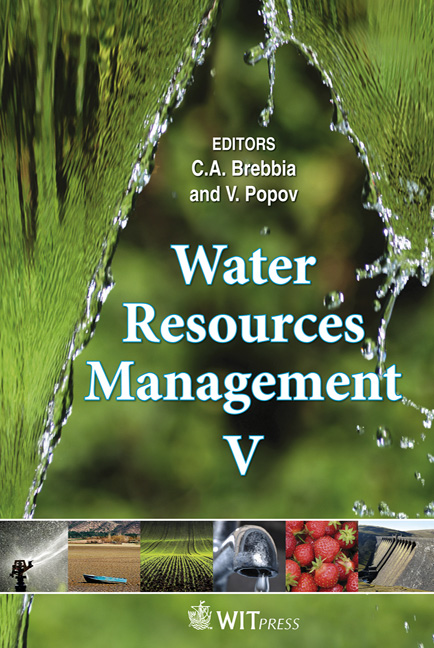Analysis Of The Temperature Influence On The Specific Resistance From Different Fractions Of The Mixed Liquor In A Membrane Bioreactor
Price
Free (open access)
Transaction
Volume
125
Pages
10
Page Range
157 - 166
Published
2009
Size
416 kb
Paper DOI
10.2495/WRM090151
Copyright
WIT Press
Author(s)
J. A. Gil, L. Túa, A. C. Rueda, M. Rodríguez & D. Prats
Abstract
Not many studies have been carried out in order to correlate the temperature influence on the filterability of different mixed liquor fractions, i.e. suspended solids (SS), colloidal matter and soluble organic matter. It is known that temperature has a big impact on the flux in the microfiltration processes, which is directly proportional to temperature. In this paper, a comparative filtration study at four different temperatures (10, 20, 30, 40ºC) is presented. The contribution of the different fractions that comprise the mixed liquor of a Membrane Bioreactor (MBR) is analyzed in sequential steps. In the first step, the resistance offered by the mixed liquor and its dependence on temperature is addressed. In the second step, the mixed liquor is centrifuged in order to remove the suspended solids and analyze the combined resistance offered by both the colloidal matter and the soluble organic matter. In the last step, the colloidal matter of greater than 1 µm is removed via filtration, and the effect of dissolved organic matter on filtration is analyzed. Specific oxygen uptake rate (SOUR) and Particle Size Distribution measurements were also carried out in order to complement the data analysis. The mixed liquor used was sampled from a submerged Kubota flat sheet membrane bioreactor situated in the sewage plant of Rincón de León, Alicante, Spain. The variables of this MBR were monitored in order to appreciate any change in parameters that could affect the sludge properties. Keywords: extracellular polymeric substances (EPS), membrane fouling, resistance, temperature.
Keywords
extracellular polymeric substances (EPS), membrane fouling, resistance, temperature





